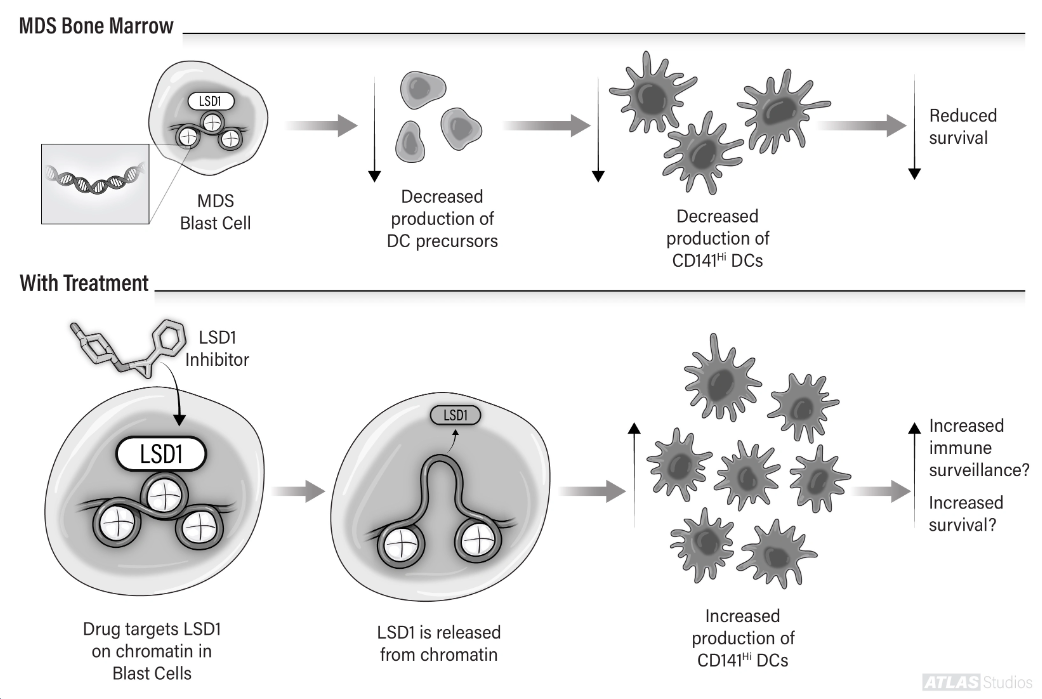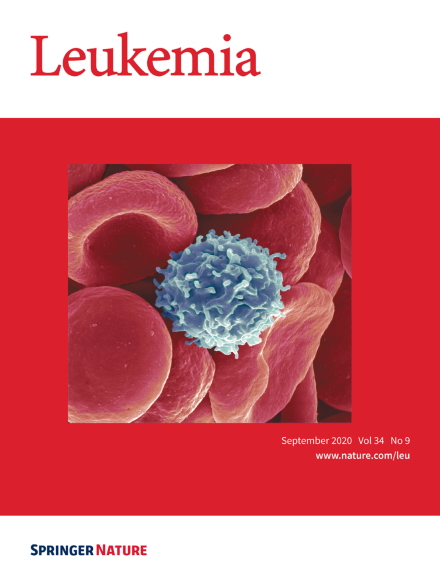Dendritic cells in myelodysplastic syndrome
Myelodysplastic syndrome (MDS) is a disease characterized by failure of normal hematopoiesis. While patients with MDS can be treated with drugs such as azacitidine and decitabine, only 50% of patients respond and these responses are transient. Thus, there is considerable enthusiasm to develop immunotherapies that can complement these drugs.
However, the successful use of immunotherapy to treat tumors, such as melanoma, lung cancer and lymphoma have highlighted the fact that an intact immune system is critical for an effective response to treatment. Unfortunately, MDS patients make fewer mature immune cells.
We have found that one type of immune cell that is defectively produced in MDS patients is a dendritic cell (DC). DCs eat up dead and dying cells and use this material to educate T-cells, which then target and kill the cause of damage.
In patients with solid tumors, infiltration of tumors by DCs characterized by a surface protein called CD141 (CD141Hi DCs) is associated with better overall survival. This DC population is especially good at educating T-cells to kill off cancer.
We found that MDS patients have fewer CD141Hi DCs and those with the lowest number have the shortest survival. Based on this finding, we are currently testing strategies to restore the CD141Hi DCs population in patients.
Studies of these important immune cells and how they can be developed into new treatments have never been done in MDS. We believe that a better understanding of the biology of DCs and how they can be used as therapies can significantly improve quality of life and survival in patients with MDS.
This work is being done in collaboration with Elizabeth Griffiths, MD, a physician-scientist in the Leukemia Service at Roswell Park Comprehensive Cancer Center.
Read the research
- Srivastava P, et al. Inhibition of LSD1 in MDS progenitors restores differentiation of CD141Hi conventional dendritic cells. Leukemia. 2020 Sep;34(9):2460-2472. doi: 10.1038/s41375-020-0765-5.
Connect with the Nemeth Lab
Email: Michael.Nemeth@RoswellPark.org
Phone: 716-845-1775
Department of Immunology
Roswell Park Comprehensive Cancer Center
Elm and Carlton Streets
Buffalo, NY 14263

